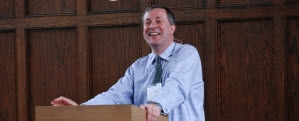GCI Hobart House Church
We are a house church, meeting most Sundays in Howrah at 10 a.m. You will find a small, welcoming, relaxed and dedicated group of local people, seeking to learn and grow in our walk with Jesus Christ. We have a simple service, and focusing on communal prayer, and study of the Scriptures as well as […]
Feeling Lonely?
Jesus Went With Him “The world is so empty if one thinks only of mountains, rivers and cities; but to know someone who thinks and feels with us, and who, though distant is close to us in spirit, this makes the earth for us an inhabited garden.” This quotation by Johann Wolfgang Von Goethe captured […]
Unanswered Prayer?
Dear Brothers and Sisters in Christ, We believe that prayer is vital to a life of faith. Skeptics may view it as merely talking aloud to an imagined deity, but that is not our problem. The problem we face with prayer is when it seems to go unanswered. When I think of biblical examples, two come […]
Healing
Divine healing or deliberate hoaxing? Dear Brothers and Sisters in Christ, I believe that God heals. Healing was a significant part of Jesus’ ministry. It is one of the gifts of the Spirit mentioned by Paul in 1 Corinthians 12. Sadly, the Spirit’s “gifts of healing” (v. 9) have often been corrupted and distorted by […]
Science is About Explanation, Religion is About Meaning

There is an insightful article by Alister McGrath at ABC the Drum on Science and Christianity; the following is a summary. I’ve listed some suggestions for further reading at the end. In the article, McGrath comments on the “New Atheists” aggressive proclamation against belief in God, and goes on to talk about what Science […]
Church Services

Mornington Community Church meets each Sunday morning at 10am. You are welcome to come along and join us. We meet at the Warrane Seniors’ Centre, 10 Binnalong Road, Mornington. Binnalong road is on the Mornington (south) side of Cambridge Road between Rosny Park and Mornington roundabout. Turn left at the first cul-de-sac on Binnalong Rd […]
Welcome!

Hello and welcome to our website. We are the Mornington Community Church, the Hobart congregation of Grace Communion International. Please come back and visit the site as we develop it. We have included a number of links to videos and articles that provide information on who we are, what we believe about life, God, and all […]
